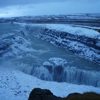Wednesday, August 18, 2010
Sunday, August 1, 2010
Convention Season
- Faerie Escape Atlanta, August 14-15
- Dragon-Con, September 3-6
- SIEGE, September 30-October 3
See ya there!
Saturday, February 20, 2010
The Great God Pan is Dead
How silly of me; gods can't die, unless it's their role to be dying and reborn gods (usually fertility or agricultural deities). The word of Pan's death was probably a misunderstanding referring to Tammuz's death. And yet…
What's going on these days, what meme is afoot, that the Greek gods are parading all over pop culture of late? Percy Jackson & The Olympians: The Lightning Thief opened in theaters the same day as the start of the Winter Olympic games, although the series of books has been out for a few years now, burning up the kid lit bestseller charts. But here come the trailers for April's release of the remake of Clash of the Titans. This time, it appears that Perseus is fighting to just be a mortal, to be left alone by the gods. The kids in the Percy Jackson books want to meet their true parents -- the gods -- and learn kewl powerz, but Perseus wants none of it, probably because of the strings attached to being a hero in Greek myth -- you become a set piece in the gods' dramas. In our ego-ascendant era, that's not acceptable. The gods have to die to make way for us.
Perhaps we should keep watch for what other forms the gods are appearing in at present, and what their game is.
Tuesday, January 19, 2010
Is This The Real Life? Is This Just Fantasy?
Is this just fantasy?
Caught in a landslide
No escape from reality
Open your eyes
Look up to the skies and see
-- Queen, "Bohemian Rhapsody"
I've gotten a bit sidetracked in reading the Red Book. I got curious about Jung's technique of active imagination. As good as Shamdasani's Introduction is for setting the historical milieu in which Jung conceived this technique, it doesn't really get at how this technique works. So, I've been reading Jung on Active Imagination, a compilation of Jung's papers that refer to the technique (which he originally called by various names, including the transcendent function).
I've only gotten through three sections -- the introduction by Jean Chodorow, a section from Jung's Memories, Dreams and Reflections, and Jung's early paper on the transcendent function (written in 1916 but revised by Jung in 1958) -- and I still haven't found what I'm looking for: more guidelines on how Jung initiated his "fantasies" (as he refers to them).
Perhaps there are no real guidelines; maybe every moment in which a fantasy can be invoked through active imagination is unique and distinct to its own character, and there are no general rules on which to draw. This seems borne out by the different but similar techniques that others used preceding Jung's "most difficult experiment", as chronicled by Shamdasani. There is probably a wealth of different approaches out there. It'd be a fascinating study to gather them all and look for commonalities. Perhaps the publication of the Red Book will draw new attention to this aspect of Jung's work, one that doesn't seem to have made any headway into non-Jungian circles. We all know about Jung's personality types and their influence on the Myers-Briggs test, and everybody knows the terms extrovert and introvert, collective unconscious, the shadow, etc. But you really don't hear about active imagination outside of Jungian or psychotherapeutic circles. Why hasn’t it had more influence on artists?
Jung himself took pains to differentiate active imagination and its expressive products (writing, painting, etc.) from art, insisting that to aestheticise it too greatly was to lose its meaning to concerns about form, and vice versa: to scrutinize it too heavily too early was to sacrifice its form for the sake of meaning alone. A symbol generated in the unconscious in its wholeness as an image is both form and meaning. To break it up into either/or is to kill its vitality, and perhaps its message.
Still … as a writer, I'm curious about how people generate ideas and how the imagination works.
I'm glad to see Jung use the term "fantasies." The word fantasy seems to have accumulated a lot of negative connotations these days. This is partly due to its use as a term designating a certain genre of fiction: generally epic or high fantasy in the Tolkien mode and/or sword-and-sorcery. This is unfortunate, since such a great word shouldn't be pigeon-holed into such a narrow sense of genre -- that is, stale trilogies about created worlds that resemble our Middle Ages. There are so many other fantasies out there that are also worthy of the venerable name.
It's also a term used by Michael Meade (and, I think, James Hillman) to refer strictly to products of the ego: fantasies about male-power, wealth fulfillment, spiritual wisdom aspirations, etc. They seem to reserve the term imagination for the products -- the images -- of the soul. I once thought this was a useful distinction. No longer. It's time to reclaim fantasy. It's a good word for the raw, unfiltered welling up of images from the unconscious, even if they are occasionally commandeered by the ego for its own one-sided purposes. Fantasy, in the end, will win through, and enchant the mind to let down its guard, so that its sleeping princesses can awaken and take the castle.
Addendum: A shout-out to the Atlanta Jung Society Red Book reading group. We met last night for the first time, and it looks to be a fruitful endeavor. Thanks, fellow Red Bookers!









